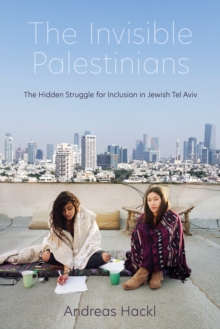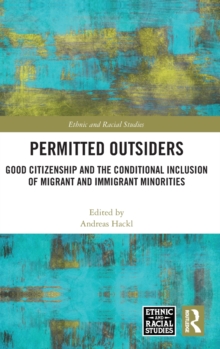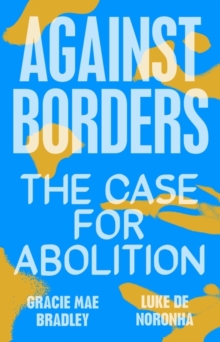The Limits of Citizenship
Featured Speakers
Andreas Hackl, Gracie Mae Bradley, chaired by Noor Hemani
“In general, campaigns for citizenship for particular groups of migrants function to reinforce the notion that you have to be a particular kind of person - a citizen, an insider, someone who belongs - in order to access fundamental rights.”
Gracie Mae Bradley and Luke de Noronha
What do we mean when we say we want open borders? What is the difference between this demand and working for a world with no borders at all? Abolitionist thinkers have shown us that we must look to the roots of harm and violence, and the need to dismantle the whole system that disappears people and renders them less than human. What does this mean for the sanctity of citizenship, and what of illegal occupations, deeming citizenship obsolete in the eyes of the occupier?
For this event, we’re delighted to host splendid writers and campaigners as they take a closer look at citizenship as the basis for rights - what kind of belonging does it provide and who does it exclude? What kind of world can we imagine in which the nation state does not determine our rights to live?
Our speakers:
Andreas Hackl is a social anthropologist at the University of Edinburgh whose research has focused on a wide range of contemporary issues, including citizenship, inequality, migration and forced displacement. He is the author of The Invisible Palestinians: The Hidden Struggle for Inclusion in Jewish Tel Aviv, and editor of the forthcoming volume Permitted Outsiders: Good Citizenship and the Conditional Inclusion of Migrant and Immigrant Minorities. More recently, his research has focused on the role of digital labour markets for refugees, involving consultancies with the International Labour Organization and the UN Refugee Agency. At Edinburgh’s School of Social and Political Science, he currently serves as Programme Director of the MSc in International Development.
Gracie Mae Bradley is a writer and campaigner with particular interests in migration, policing, surveillance and abolition. Before moving to Glasgow she spent ten years working in NGOs in England, including as Director of the civil liberties group Liberty. She has also long been involved in grassroots liberation work, including as a founding member of the grassroots Against Borders for Children campaign, on the Board of SOAS Detainee Support, and as a co-facilitator for the Black Abolitionist Futures reading group. Gracie has written extensively for a range of publications including the Guardian, Independent, Vice, OpenDemocracy and more. In 2022, she and Dr Luke de Noronha published Against Borders with Verso Books. Other writings include From Grenfell to Windrush in 'After Grenfell: Violence, Resistance and Response' (2019), and the poem Unlawful Gathering in ‘When This Is Over: Reflections on an Unequal Pandemic’ (forthcoming 2023). Gracie loves film photography, contemporary poetry and speculative fiction, and is an artist member of Glasgow Print Studio where she has recently taken up etching.
Featured Books
- title
- The Invisible Palestinians : The Hidden Struggle for Inclusion in Jewish Tel Aviv
- author
- Andreas Hackl
- title
- Permitted Outsiders : Good Citizenship and the Conditional Inclusion of Migrant and Immigrant Minorities
- author
- Andreas Hackl
- title
- Against Borders: The Case Against Abolition
- author
- Gracie Mae Bradley & Luke de Noronha


